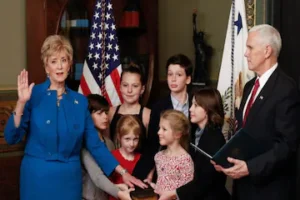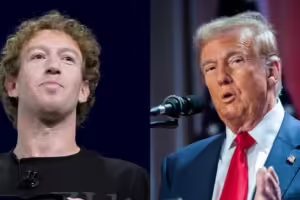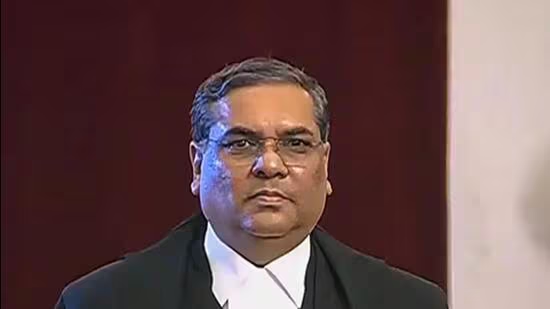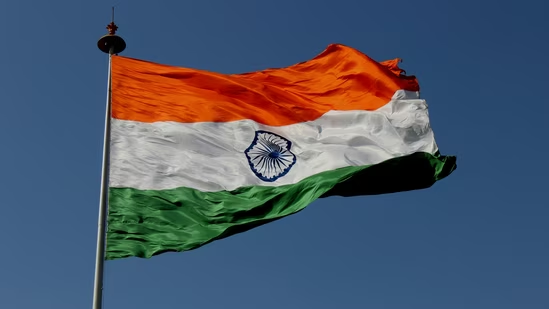No Country, Whether US Or China, Can Ignore India: Nirmala Sitharaman

Washington:
India aims to boost its global presence, as emphasized by Union Finance Minister Nirmala Sitharaman. With one in every six individuals being of Indian descent, India’s economic significance on the world stage is undeniable and cannot be overlooked.
During a panel discussion titled ‘Setting Priorities for the Next Decade: Bretton Woods Institutions at 80’ hosted by the Center for Global Development during the 2024 World Bank and International Annual Meetings in Washington, DC, Ms. Sitharaman emphasized that India must not be overlooked by any nation, be it the distant US or the neighboring China.
Ms. Sitharaman expressed confidence in the potential for countries like India and other prominent emerging markets to take charge and drive forward the reform process. Reflecting on the words of Prime Minister Modi, she emphasized that India’s focus is not on asserting dominance due to its status as the world’s largest democracy with a vast population. Instead, the aim is to increase influence globally. With India’s significant demographic and economic presence – with one in every six individuals being Indian – it is essential to acknowledge and leverage this growth trajectory.
The third point highlighted is the presence of talented professionals in India and various other locations who manage significant corporations operating institutions in developed countries. However, she emphasized Larry’s observation that the traditional path followed by developed countries, from manufacturing textiles, bicycles, and other goods to achieving growth, is no longer viable in today’s global landscape.
The Finance Minister emphasized the significance of India on a global scale, pointing out that India’s prowess in technology plays a pivotal role. Indians are recognized for their adeptness in providing and utilizing technological solutions, be it for complex corporate operations like refining systems, oil refineries, multilateral banking frameworks, and beyond. The Minister highlighted that India’s technological leadership cannot be underestimated, considering its geopolitical position in the global arena. This positioning ensures that countries, whether geographically distant like the US or proximate like China, cannot overlook India’s impact and contributions.
Nirmala Sitharaman emphasized India’s longstanding support for multilateral institutions, clarifying that the country has never aimed to weaken any such organizations. She highlighted the diminishing confidence in these institutions due to the lack of tangible solutions being produced.
In articulating India’s endorsement of multilateral organizations, the Union Minister emphasized, “Our approach has consistently been one of strategic and harmonious engagement with multilateral entities. This is the kind of multilateralism we should discuss. India has consistently advocated for the effectiveness of multilateral institutions, refraining from any actions that could weaken them. However, we are now witnessing a gradual erosion of hope and trust in these institutions, as they seem to be failing to deliver tangible solutions.
Larry emphasized that currently, these institutions fail to provide an alternative pathway, which is a key point for him. He highlighted the significance of the core competencies possessed by these institutions. These competencies enable them to analyze various economies, understand the dynamic growth of some while others remain stagnant, and utilize their information base effectively. Therefore, they should take the lead in sharing information and making suggestions without imposing their views.
Among the participants in the dialogue were Lawrence H. Summers, Emeritus President and Charles W. Eliot University Professor at Harvard University, Carlos Cuerpo, Minister of Economy, Trade, and Business of Spain, and Rania A. Al Mashat, Minister of Planning, Economic Development, and International Cooperation of Egypt.
Ms. Sitharaman emphasized the need for multilateral organizations to enhance their capabilities for the betterment of the world. Highlighting that shaping the future is a lofty aspiration, she advocated for the active participation of Bretton Woods institutions in this endeavor.
One of her prior discussions with Larry involved him expressing a worry: How do establishments such as the IMF and the World Bank inform a nation that its economy is in a dire state and there is no feasible solution? It is beyond their capability and necessity to do so.
[Rewritten Content]: Despite this, they are capable of sharing timely information with countries and enhancing institutional strength rather than dismantling them, using their extensive information, experience, and human resources. Strengthening institutions is crucial for the greater good of the global community and is essential for bolstering multilateralism. Advocating for multilateralism, they discussed various topics such as LiFE, a mission in India that promotes a lifestyle focusing on environmental sustainability and adapting to different ways of living,” she elaborated.
Stressing the Bretton Woods institutions role in shaping the future, the Union Finance Minister said, “Shaping the future is one very ambitious nice goal and we need to follow that and we need to have Bretton Woods institutions work on that rather than reacting to future developments. Unfortunately, in the last few decades, we see them reacting to future developments with the strength that they have. And I think, therefore, information sharing is one thing.”
Established during a gathering of 43 nations in Bretton Woods, New Hampshire, USA in July 1944, the World Bank and the International Monetary Fund (IMF) form the Bretton Woods Institutions. Their primary objectives encompassed aiding in the reconstruction of the devastated postwar economy and fostering global economic collaboration.
Ms. Sitharaman highlighted that India possesses the International Solar Alliance and Biofuel Alliance, emphasizing the necessity of funding for disaster-resilient infrastructure. She stressed the importance of supporting countries with smaller and island economies. Through utilizing publicly funded digital public infrastructure extended to various nations, India aims to address these critical areas and contribute significantly.
Upon her arrival in Washington, DC on Wednesday, Nirmala Sitharaman was greeted by India’s Ambassador to the US, Vinay Kwatra. Before her visit to the US capital, Ms. Sitharaman had been in New York.
The Ministry of Finance announced in a post on X that upon her return from New York, Union Minister of Finance and Corporate Affairs, Smt. @nsitharaman, was greeted in Washington DC by India’s Ambassador to the USA, Shri @AmbVMKwatra, this evening.














